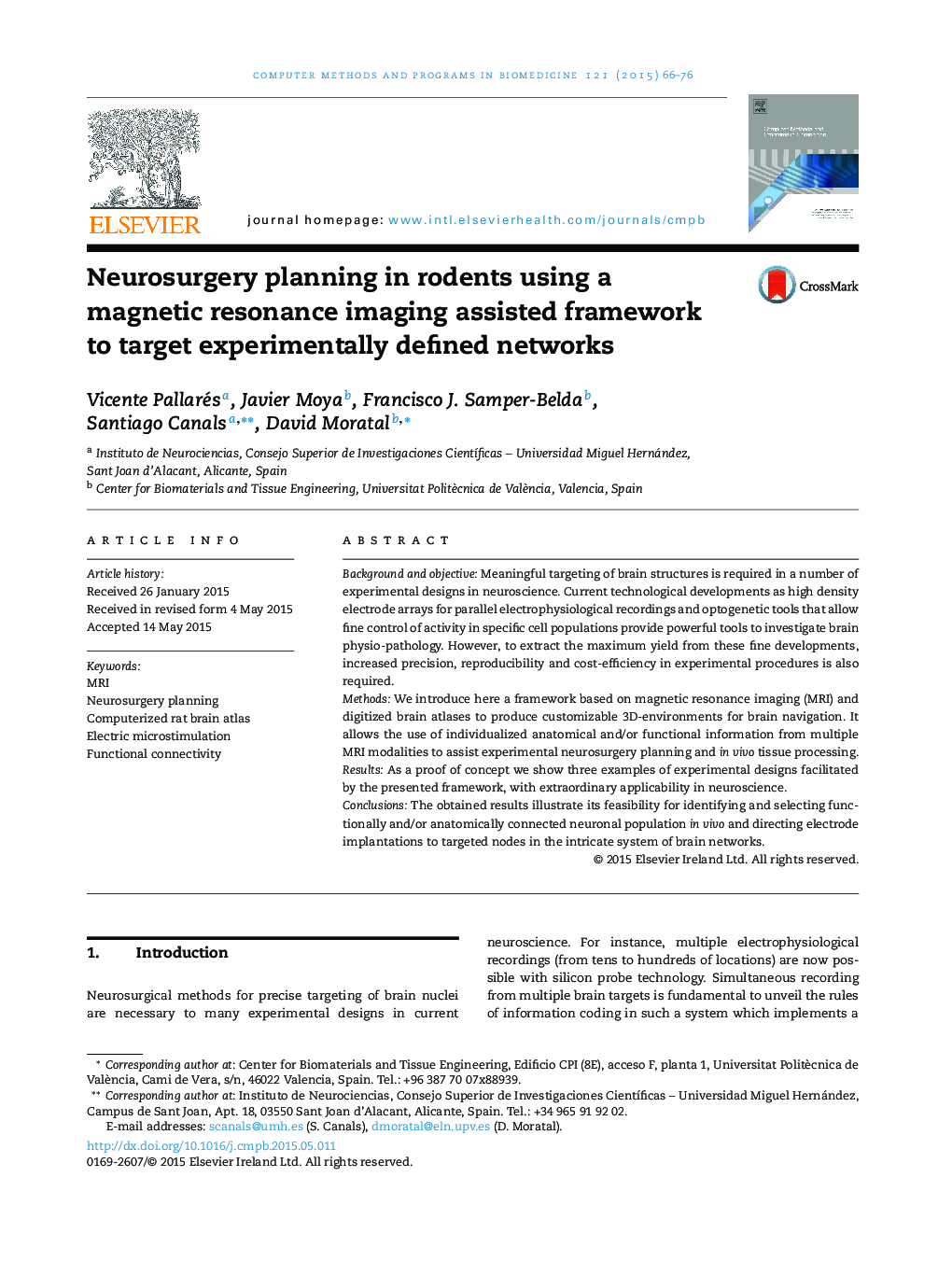| Article ID | Journal | Published Year | Pages | File Type |
|---|---|---|---|---|
| 466348 | Computer Methods and Programs in Biomedicine | 2015 | 11 Pages |
•Framework based on magnetic resonance imaging and digitized 3D brain atlases for brain navigation.•It allows the use of individualized information from multiple MRI modalities to assist experimental neurosurgery planning and in vivo tissue processing.•Three examples of experimental designs in neuroscience are presented.•The results illustrate its feasibility for identifying and selecting connected neuronal population in vivo and directing electrode implantations to targeted nodes in the intricate system of brain networks.
Background and objectiveMeaningful targeting of brain structures is required in a number of experimental designs in neuroscience. Current technological developments as high density electrode arrays for parallel electrophysiological recordings and optogenetic tools that allow fine control of activity in specific cell populations provide powerful tools to investigate brain physio-pathology. However, to extract the maximum yield from these fine developments, increased precision, reproducibility and cost-efficiency in experimental procedures is also required.MethodsWe introduce here a framework based on magnetic resonance imaging (MRI) and digitized brain atlases to produce customizable 3D-environments for brain navigation. It allows the use of individualized anatomical and/or functional information from multiple MRI modalities to assist experimental neurosurgery planning and in vivo tissue processing.ResultsAs a proof of concept we show three examples of experimental designs facilitated by the presented framework, with extraordinary applicability in neuroscience.ConclusionsThe obtained results illustrate its feasibility for identifying and selecting functionally and/or anatomically connected neuronal population in vivo and directing electrode implantations to targeted nodes in the intricate system of brain networks.
